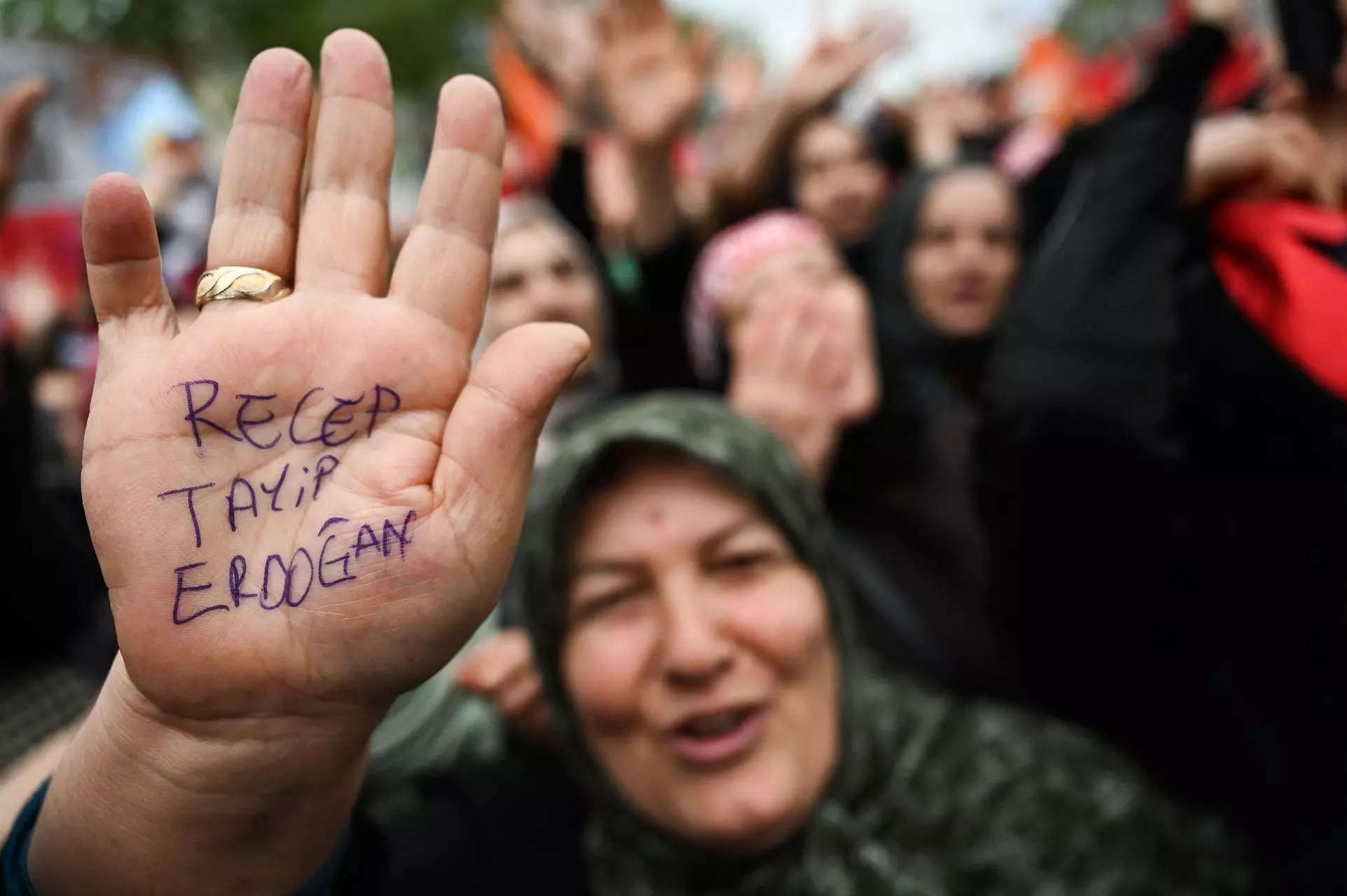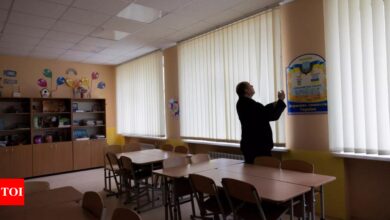World
Turkiye: Crucial polls today in Turkiye, Thailand

[ad_1]
ISTANBUL: As President Recep Tayyip Erdogan of Turkiye approaches the toughest election of his career on Sunday, he has marshalled many of the resources of the state to tilt the playing field to his advantage. Erdogan, who has come to increasingly dominate the country over the past two decades, tapped the treasury for populist spending programmes and has raised the minimum wage three times in the last year and a half. His challenger barely appears on the state broadcaster, while Erdogan’s speeches are aired in full. And this weekend’s vote will be overseen by an election board that, during recent votes, have made questionable calls that benefited the president. And yet, Erdogan could still lose.
Polls show Erdogan trailing the main opposition candidate Kemal Kilicdaroglu, a 74-year-old former civil servant, a day ahead of elections. However, if neither of them win more than 50% of the vote, the vote will go to a runoff on May 28. Voters will also elect a new parliament. Polls will open at 8 am (local time) and close at 5 pm. By late on Sunday there could be a good indication of whether there will be a runoff vote for the presidency.
Erdogan’s grip on the country could contribute to his undoing if voters drop him because of his strongman ways and persistently high inflation that has left Turks feeling poorer. Erdogan has eroded democratic institutions, stocking the judiciary with loyalists and limiting free expression. His main challenger, Kilicdaroglu, has vowed to restore democracy if he wins. The close race speaks to Turkiye’s complicated character. Political scientists say it is neither a full democracy nor a full-blown autocracy, but rather a mix of the two in which the leader has outsize power but where elections can still bring about change. Turkiye has never tipped into full-on autocracy because electoral politics retain a hallowed place in the national identity, one revered by Erdogan himself. He and his governing Justice and Development Party have regularly trounced their opponents at the ballot box over the years with no indications of foul play, granting Erdogan a mandate.
Turkiye’s political ambiguity is also reflected in its global position. During Erdogan’s tenure, much of Turkish foreign policy has become personally associated with him. He condemned Russia’s invasion of Ukraine and sent aid to the Ukrainian government while not only refusing to join Western sanctions on Russia but also expanding trade ties with and drawing closer to Russian President Putin. He has sparred with the US over Syria policy and disparages Washington in his speeches. He heads a Nato member state but has hampered the alliance’s expansion, delaying Finland’s ability to join and still refusing to accept Sweden. All of that, at times, has left Western leaders wondering whose side he is really on.
After Erdogan rose to the national stage as PM in 2003, he was widely seen as a new model of Islamist democrat, one pro-business and interested in strong ties with the West. During his first decade, Turkiye’s economy boomed, lifting millions into the middle class. But more recently – after facing mass street protests against his governing style, becoming president in 2014 and surviving a failed coup attempt in 2016 – he purged his foes from the state bureaucracy, limited civil liberties and centralised power in his hands. Erdogan retains a fervent following, particularly among working-class, rural and more religious voters. He has pushed back against Turkiye’s state secularism, expanding Islamic education and changing regulations to allow women in government jobs to wear headscarves. The opposition says that his consolidation of power has gone too far and portrays Sunday’s vote as a make-it-or-break-it moment for Turkish democracy.
Polls show Erdogan trailing the main opposition candidate Kemal Kilicdaroglu, a 74-year-old former civil servant, a day ahead of elections. However, if neither of them win more than 50% of the vote, the vote will go to a runoff on May 28. Voters will also elect a new parliament. Polls will open at 8 am (local time) and close at 5 pm. By late on Sunday there could be a good indication of whether there will be a runoff vote for the presidency.
Erdogan’s grip on the country could contribute to his undoing if voters drop him because of his strongman ways and persistently high inflation that has left Turks feeling poorer. Erdogan has eroded democratic institutions, stocking the judiciary with loyalists and limiting free expression. His main challenger, Kilicdaroglu, has vowed to restore democracy if he wins. The close race speaks to Turkiye’s complicated character. Political scientists say it is neither a full democracy nor a full-blown autocracy, but rather a mix of the two in which the leader has outsize power but where elections can still bring about change. Turkiye has never tipped into full-on autocracy because electoral politics retain a hallowed place in the national identity, one revered by Erdogan himself. He and his governing Justice and Development Party have regularly trounced their opponents at the ballot box over the years with no indications of foul play, granting Erdogan a mandate.
Turkiye’s political ambiguity is also reflected in its global position. During Erdogan’s tenure, much of Turkish foreign policy has become personally associated with him. He condemned Russia’s invasion of Ukraine and sent aid to the Ukrainian government while not only refusing to join Western sanctions on Russia but also expanding trade ties with and drawing closer to Russian President Putin. He has sparred with the US over Syria policy and disparages Washington in his speeches. He heads a Nato member state but has hampered the alliance’s expansion, delaying Finland’s ability to join and still refusing to accept Sweden. All of that, at times, has left Western leaders wondering whose side he is really on.
After Erdogan rose to the national stage as PM in 2003, he was widely seen as a new model of Islamist democrat, one pro-business and interested in strong ties with the West. During his first decade, Turkiye’s economy boomed, lifting millions into the middle class. But more recently – after facing mass street protests against his governing style, becoming president in 2014 and surviving a failed coup attempt in 2016 – he purged his foes from the state bureaucracy, limited civil liberties and centralised power in his hands. Erdogan retains a fervent following, particularly among working-class, rural and more religious voters. He has pushed back against Turkiye’s state secularism, expanding Islamic education and changing regulations to allow women in government jobs to wear headscarves. The opposition says that his consolidation of power has gone too far and portrays Sunday’s vote as a make-it-or-break-it moment for Turkish democracy.
#Turkiye #Crucial #polls #today #Turkiye #Thailand






